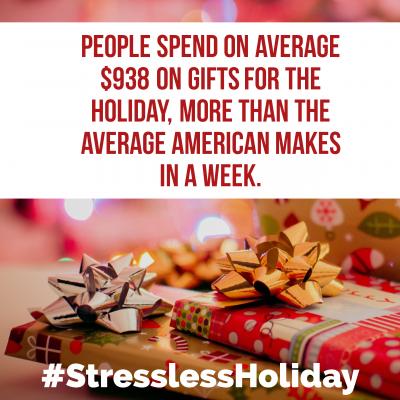
The holiday seasons can be full of stress. We talked with SIMED Healthy Psychologist Dr. Kristy Quackenbush about why the holidays cause so much anxiety and what you can do to reduce that stress.
Why are the holidays stressful?
We tend to experience more stress during the holiday season for many reasons!
First, people put pressure on themselves to buy the “perfect” gift for loved ones. Gift buying often leads to people feeling overwhelmed about spending money (that they often do not have). According to the American Research Group, the average American is planning on spending $983 on Christmas presents, which is more than the average American makes in a week!
The holidays can also be stressful when gathering family members under one roof. Past negative interactions, past psychological injuries, different life views (I.e. Political views), judgmental/rude comments (“Did you gain weight?” “Are you still single?!”), and unsolicited advice given from fellow family members can be overwhelming and anxiety inducing.
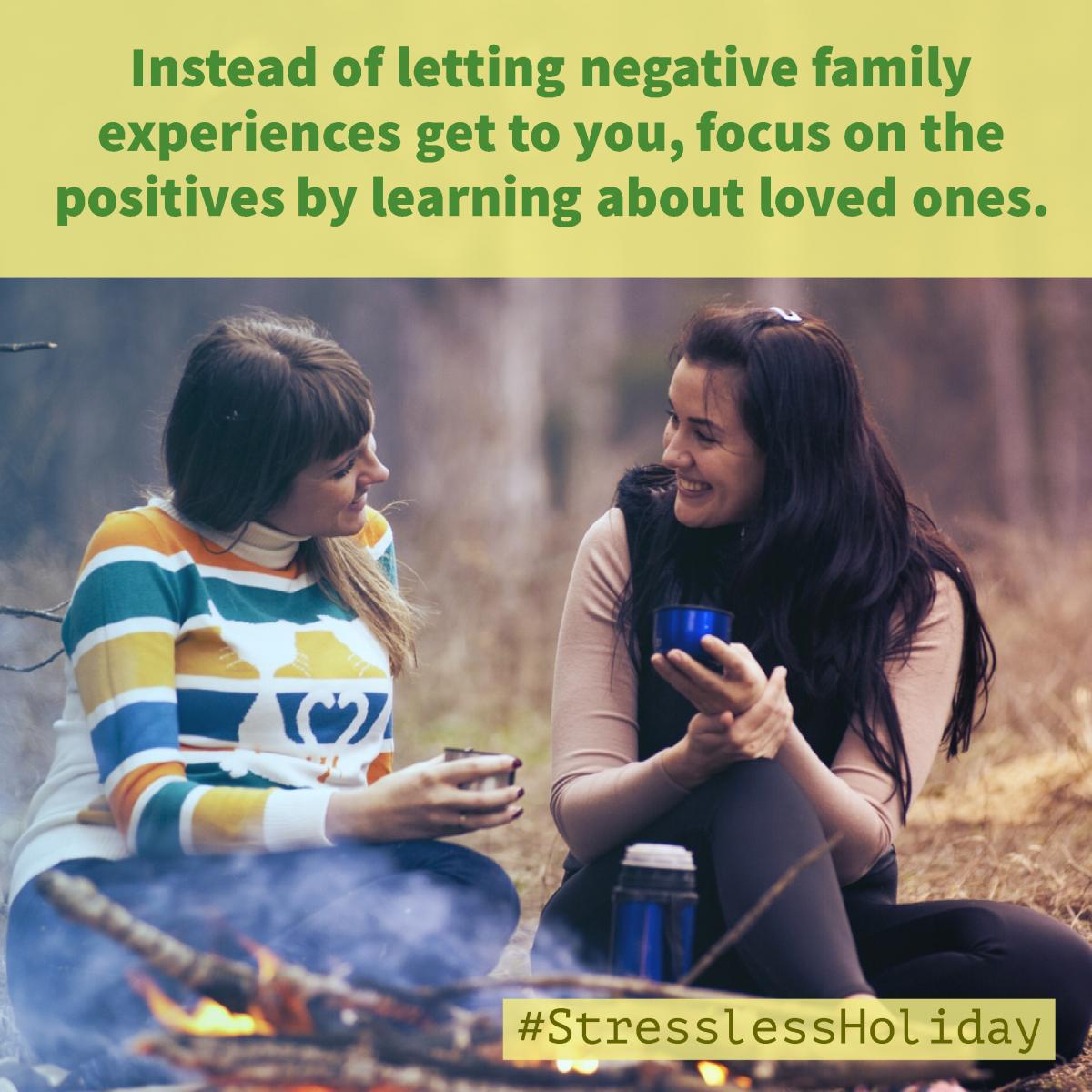 Furthermore, setting unrealistic expectations for the holidays also increases holiday stress.
Furthermore, setting unrealistic expectations for the holidays also increases holiday stress.
Another stressor is food! The American culture centers many holidays around the food. For some, cooking is overwhelming. Some people have food allergies. Some people have health complications that can be affected by food. Some people worry about their weight. The holidays are a time when many are tempted to overeat or eat food that will negatively affect their health.
Last but not least, people tend to travel for the holidays, and whether you’re traveling via car, plane, or train, traveling can be stressful.
What are some indicators that I might be stressed about the holidays?
Symptoms of stress include:
1. Poor sleep
2. Change in appetite
3. New physical complaints (such as headaches, tightness in the neck, stomach aches, shortness of breath, nausea, diarrhea)
4. Being more forgetful
5. Being more irritable
6. Crying
7. Yelling/arguing
Our body is always providing us with information, and often we are “too busy” to listen. Pay attention to your physical symptoms/cues and take stock of the basic life necessities (I.e. “Have I been sleeping well?”, “Did I eat and drink enough water today?”).
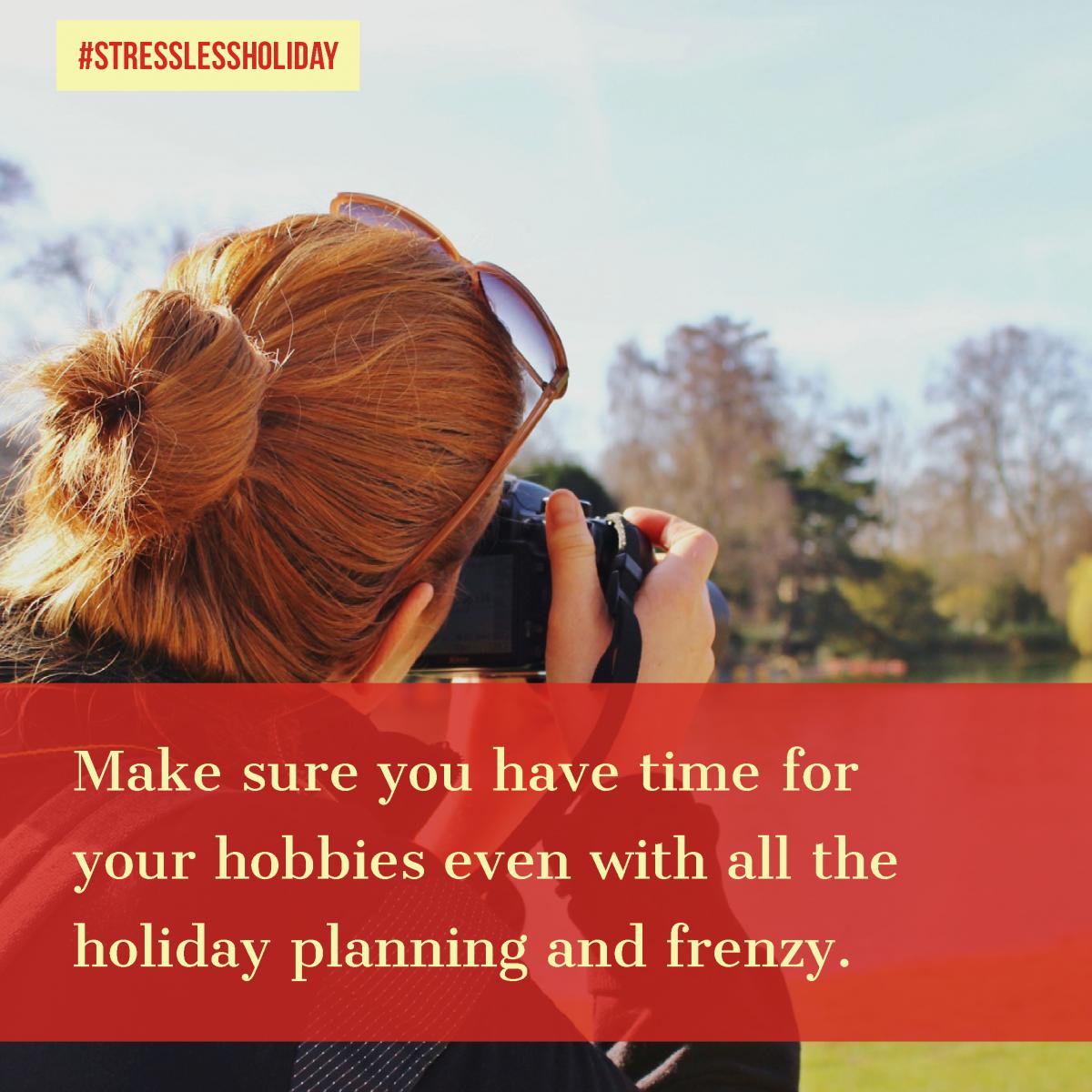 I’ve figured out I’m stressed. What can I do to feel better?
I’ve figured out I’m stressed. What can I do to feel better?
These tips will help you feel better in no time.
1. Get around 8 hours of sleep.
Avoid electronics (I.e. cellphones, televisions, IPads, etc.) at least 30 minutes before bed.
Avoid caffeine in the evening.
2. Eat well.
Avoid eating just one large meal.
Eat vegetables and fruits.
Limit alcohol intake.
Limit sugar.
Drink water.
When we are not sleeping or eating well, our physical health, mood, and memory can be negatively impacted.
3. Exercise.
Exercise is beneficial for our physical health, decreasing stress, improving mood, and improving memory.
A 30-minute walk outside in a local park can assist with decreasing stress.
Consider listening to your favorite music while walking or working out.
4. Continue to engage in hobbies/activities you enjoy.
This will give you a break from the stressors of the day.
5. Engage in a mindfulness activities.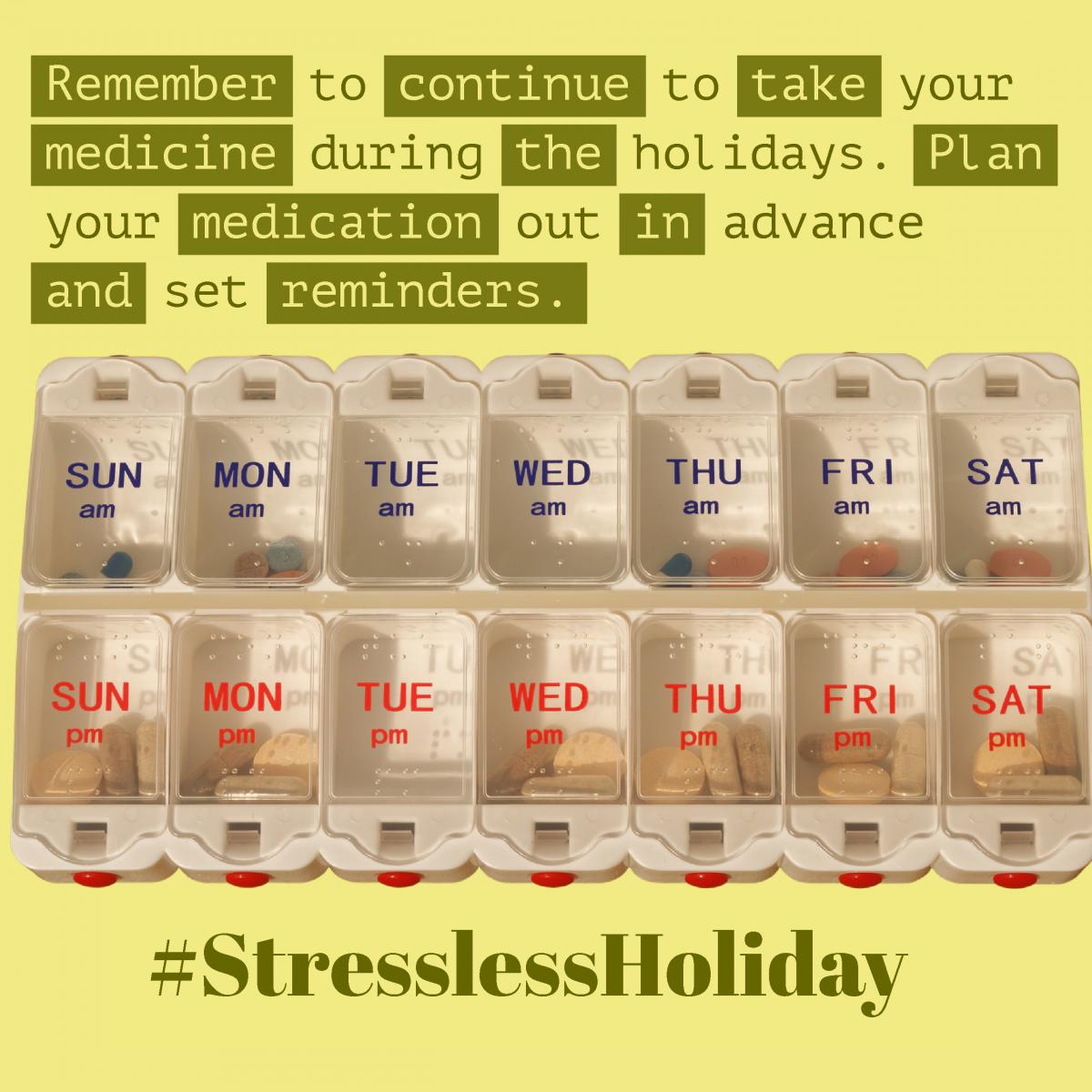
For example, while eating your favorite food or spending time outside, stop and ask yourself: What do I see? What do I feel? What do I hear? What do I taste? What do I smell? Take time engaging in all your senses. Stop and smell the roses!
6. Continue to take your medications as prescribed!
People have a tendency to forget to take their medications due to changes in daily routine (I.e. traveling) or the excitement of the holiday.
If none of these tips are helpful, contact a mental health provider such as a psychologist, mental health counselor, or psychiatrist.
Remember to also focus on the positives!
1. Use cognitive reframes (I.e. Yes, I have a flat tire, but at least, I have a vehicle or did not get injured!).
2. Take time to enjoy the holiday by learning about loved ones (I.e. ask questions: What was your favorite toy as a child? If you could travel anywhere in the world, where would it be?)
3. Remember that a more expensive gift does not mean you love someone more. Spending time with a person is an invaluable gift.
4. Consider looking into a local church or finding an Alcoholics Anonymous or Narcotics Anonymous meeting if you are traveling out of the area.
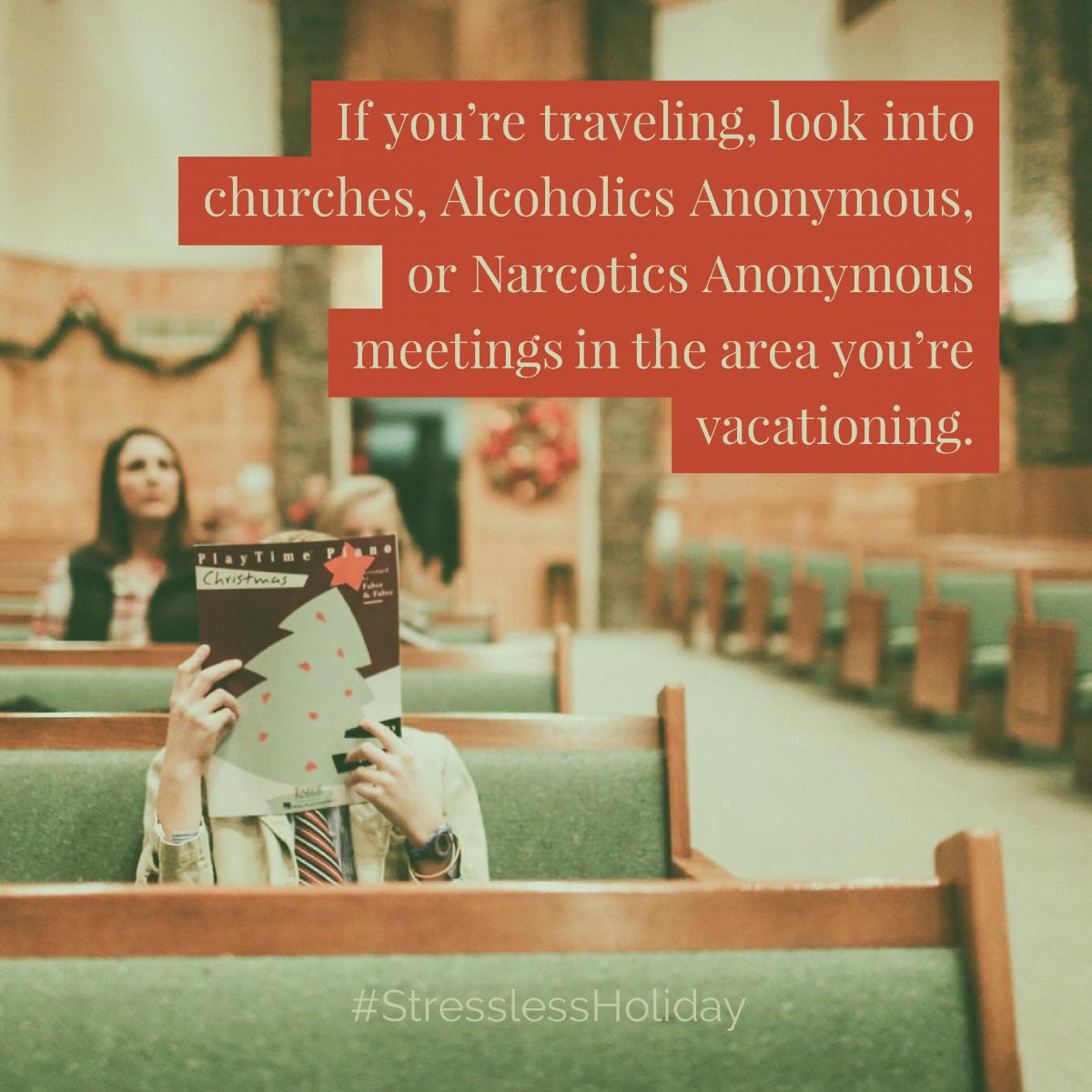 Stress not only has short-term repercussions (I.e. muscle tension, diarrhea, poor sleep, low libido, depression, anxiety, etc.), but it can also lead to ulcers, high blood pressure, heart disease, memory impairment, and more. Managing stress is important, even during the holidays, when you feel like you need to prioritize so much else.
Stress not only has short-term repercussions (I.e. muscle tension, diarrhea, poor sleep, low libido, depression, anxiety, etc.), but it can also lead to ulcers, high blood pressure, heart disease, memory impairment, and more. Managing stress is important, even during the holidays, when you feel like you need to prioritize so much else.
Dr. Quackenbush sees patients in Ocala and Lady Lake who are coping with a physical illness. To schedule an appointment with her or another health psychologist in Ocala or Lady Lake, call (352) 732-3110. You can also schedule an appointment online.
SIMED Health Psychologists are also available in Gainesville and Chiefland at (352) 332-9441 or via an appointment request online, and SIMED Psychiatry is offered in Lady Lake/The Villages at (352) 753-6887 or online.
Happy Holidays!
Follow us on Facebook and Twitter for more articles and information!